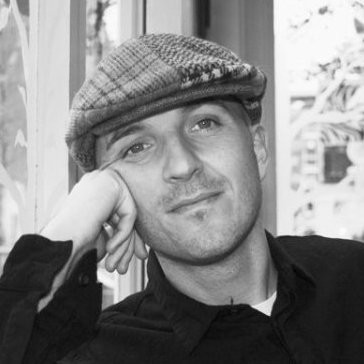Corporate culture in 2024 has become a bit of a whirlwind. We’re fortunate in many respects that more open conversations on diversity, equality and inclusion (DEI) have led to new HR policies and schools of thoughts to foster both an inclusive and also productive environment. That’s not without its challenges, though, and often criticism too, as these policies can often face scrutiny for a variety of reasons, whether ill-thought out, well-meant or otherwise. There’s no doubt in my mind that there will always be work needed to continue to adapt working styles for a diverse and international workforce, but the key is that this goes beyond people and culture. This isn’t a logo change or a new management policy, but instead is deep-rooted in the ability of every employee in the business to be able to contribute fully, and unhindered. Co-founding Definely meant that our very raison d’etre was rooted in accessibility, as we soon discovered that a solution originally intended to increase accessibility for those who have visual impairments actually served the needs of nearly all lawyers. We often explore the serendipitous nature of innovation – whether 3M’s iconic Post-it note or the corduroy field walker that led to the inception of velcro. What’s far more fascinating, and fruitful, is ensuring that unique voices within the business are given a voice and can offer a different perspective. The true driver of innovation isn’t just technology, nor business models. They’re just enablers. It’s the power of diverse thinking within an organisation.
When we talk about diversity, it’s essential to understand the relationship between diversity of people and diversity of ideas. Ultimately, it is people and their backgrounds that generate ideas; an idea cannot be separate from the human who conceives it. However, what truly matters is an individual’s openness to diverse perspectives. We can distinguish between people who are open to a diversity of ideas and those who are closed. It’s about an individual’s frame of mind and willingness to embrace diverse viewpoints, regardless of their background.
This mentality of valuing diverse thinking extends beyond company culture and into product development. At Definely, we embrace the concept of “solving for the edges and getting the middle for free.” Most products are designed for the average user, which can be exclusive. For example, the average car has the average seat size and steering wheel for the average person of average height, because that will sell to the most people. However, when you design for the exceptions (the edges), you create more inclusive products that also benefit the average user. Those who are generally average will fall within the exception as well, and that’s how you get the middle for free. To create diverse solutions, you need diversity of thought because no one person can see from all edges.
When it comes to hiring and managing for diverse thinking, it’s crucial to assemble a diverse team by creating a culture that supports and values different perspectives. Look for candidates who demonstrate openness to diverse ideas and willingness to embrace different viewpoints. Once you have a diverse team, manage them by fostering an environment where ideas can be constructively criticized without personal attacks. There is only one rule I say to everybody at the company: nobody should be so married to their opinion that they can’t divorce it. The only objective in criticism is to criticise the idea and never the person. No one should ever walk away from feedback feeling they have let someone down because of the idea.
Navigating divergent opinions in a diverse team can be challenging, but it’s essential to strike the right balance. You learn over time to sense when enough discussion has taken place and a decision needs to be made. Trust your team members to make the best decisions based on available information, even if hindsight proves otherwise. Diversity of opinions can potentially slow things down if you allow it to become a never-ending Sisyphean debate.
There is a parallel between prioritising accessibility in product development and diversity in team building. Both stem from the desire to include and provide equal opportunities. The goal is to give everyone a fair chance, whether in accessing digital products or in their careers. The diversity of life experiences between co-founders can naturally influence a company’s approach to diversity. It’s not about consciously trying to be more diverse, but rather being predisposed to inclusivity from the start.
As Definely has grown, we maintain the diversity of ideas as a cultural value by living the practice. There are policies in place, but there is no policy needed because we live this. My co-founder Nnamdi and I grew up this way; this is how we think. We wanted to create a world where no one ever felt like outsiders, that they didn’t belong or were somehow an imposter. If anything, the only thing we want to create is an environment that we did not necessarily feel always existed in our previous experiences.
In conclusion, embracing diverse thinking is much more than a cultural policy. It needs a reputational overhaul and an appreciation as a business necessity in today’s world. By fostering a culture that values and encourages diverse perspectives, organisations can tap into a powerful source of innovation and create more inclusive and effective solutions. As leaders, it is our responsibility to create an environment where every employee feels valued and respected for their unique contributions. The advice I would give to other legal tech founders looking to build teams and products focused on the power of diverse thinking is simple: never be satisfied with the average.







